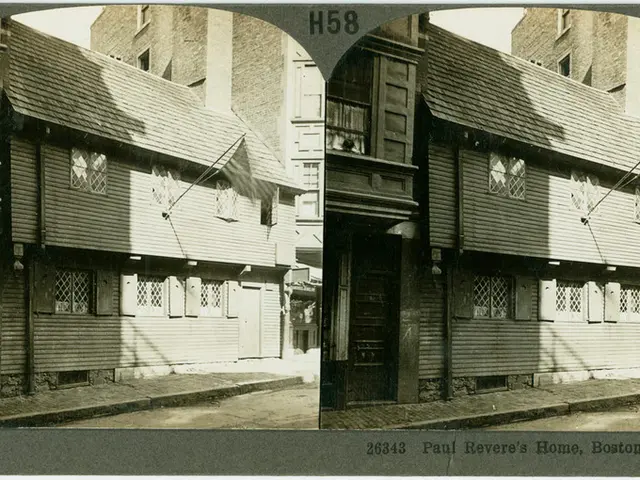Proposed U.S. House budget legislation threatens to diminish Pennsylvania schools' financial advantages from planned solar energy initiatives
💥 Hurry, schools in PA & surrounds, act swiftly on solar power! 💡
The Solar for Schools initiative in Pennsylvania, funded through state resources, plans to install solar panels across dozens of schools, slashing electricity costs and reducing carbon footprints. But a spanner in the works might be the latest U.S House budget that aims to roll back federal clean energy tax credits, essential for schools' plans.
💔 Potential funding roadblocks
Daniel McGarry, the superintendent of the Upper Darby School District in Delaware County, is worried. The district has earmarked over $2 million in Solar for Schools grants, plus federal tax credits, for solar projects at six schools. "If the federal dollars are cut, we will not be able to move forward with these projects," he says.
🚀 Successful state funding launch
Last month, Pennsylvania's Solar for Schools program awarded grants to 74 schools. The plan is for districts to use the state money to access federal clean energy tax credits for the first time under President Biden's Inflation Reduction Act. By combining state grants and federal credits, cash-strapped schools could get solar arrays essentially for free and save on future electricity bills.
🛑 Barriers introduced by House budget
Not so fast, says Sharon Pillar, director of the Pennsylvania Solar Center. The House-approved budget accelerates the expiration of these vital tax credits, with schools needing to start building their solar projects within 60 days of enactment and finish them by the end of 2028. Pillar asserts that these rules would be all but impossible for schools to meet.
💔 Implications without federal tax credits
While there's no barring schools from proceeding without federal tax credits, losing them would slash savings by a third, according to Pillar. "Some of these schools will go forward, and some of them won't," she says.
🌐 The bigger picture
The House-approved budget is still pending Senate approval, where lawmakers may scale back changes to the tax credits. Yet uncertainty remains.
💰 Reducing energy bills, saving taxpayers money
The Solar for Schools program, created with state funding last year, offers grants covering half the costs of solar energy equipment and installation. Projects are expected to save districts money on energy bills, helping avoid escalating electricity costs.
💰 Real-world savings
For instance, the Community College of Philadelphia aims to save over $900,000 over 25 years with a Solar for Schools grant. Other schools stand to benefit similarly, redirecting funds to education and essential facilities projects.
🌱 Growing green initiatives
The influx of solar power could signal a shift towards sustainability in schools across Pennsylvania and Delaware, benefiting the environment and saving taxpayers money in the long run.
SOURCE: Give us a holler our website
[1] The Philadelphia Inquirer - Solar for Schools will help states save on utility bills, analysts say[2] The Hill - U.S. House passes budget including modifications to clean energy tax credits[3] The Wall Street Journal - Solar industry fights against proposed ITC phaseout[4] NorthJersey.com - Pennsylvania lead projects in Solar for Schools grants[5] Forbes - How the Inflation Reduction Act will impact the residential solar tax credit
- The potential cut in federal clean energy tax credits is concerning for educational institutions like the Upper Darby School District, as they could struggle to fund solar projects without these credits, according to superintendent Daniel McGarry.
- If the House budget's modifications to federal clean energy tax credits are implemented, schools might see a significant reduction in savings on their solar project costs, as suggested by Sharon Pillar, director of the Pennsylvania Solar Center.








